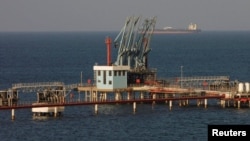Fourteen years after the people of Libya put away their differences and worked together to oust long-time dictator Muammar Gaddafi, the promise of a “dream of a civil, democratic and prosperous Libya remains unfulfilled,” according to the United Nations.
Libya is divided between two rival entities: the internationally recognized Government of National Unity, which is based in Tripoli, and the Government of National Stability, supported by the Libyan House of Representatives and the Libyan National Army, which controls the eastern half of the country. The struggle between the two rival factions is not just about who rules the country. It is very much about who gets the revenue from Libya’s oil exports.
Indeed, oil smuggling is a major problem in Libya, one that has increased since the fall of the Gaddafi regime.
Nonetheless, despite a political impasse, or perhaps because of it, Libya has enjoyed three years of fragile stability. But, according to the UN, “entrenched divisions, economic mismanagement, continued human rights violations, and competing domestic and external interests, continue to erode unity and stability in the country” and increasingly put the country at risk of renewed conflict.
“A political solution is the path to long-term stability in Libya,” said Dorothy Shea, United States Chargé d’Affaires ad interim to the U.N. “Time is of the essence for UN-led efforts in the face of destabilizing activities from external actors.”
“Key to safeguarding Libya’s sovereignty and territorial integrity is the broader re-unification of Libyan institutions via east-west security integration, which is now permissible following the Council’s modification to the arms embargo last month.”
Ambassador Shea pointed out “the importance of maintaining the Libyan ceasefire agreement and achieving the reintegration goals enshrined in successive Council resolutions.”
“To build on this progress, we also urge Libyan parties to reach agreement on a unified budget to preserve Libya’s economic stability, invest in development, and end persistent conflicts over revenue sharing that have led to shutdowns in the past.”
Finally, because Libya's resources belong to all of its people, not just those few who can get their hands on them, Ambassador Shea applauded the UN Security Council’s “updated designation criteria for individuals and entities destabilizing Libya through the illicit exploitation and export of petroleum. Fuel smuggling is leading to a massive transfer of wealth out of Libya,” she said. “For the welfare of the Libyan people, this theft and corruption must be addressed.”






